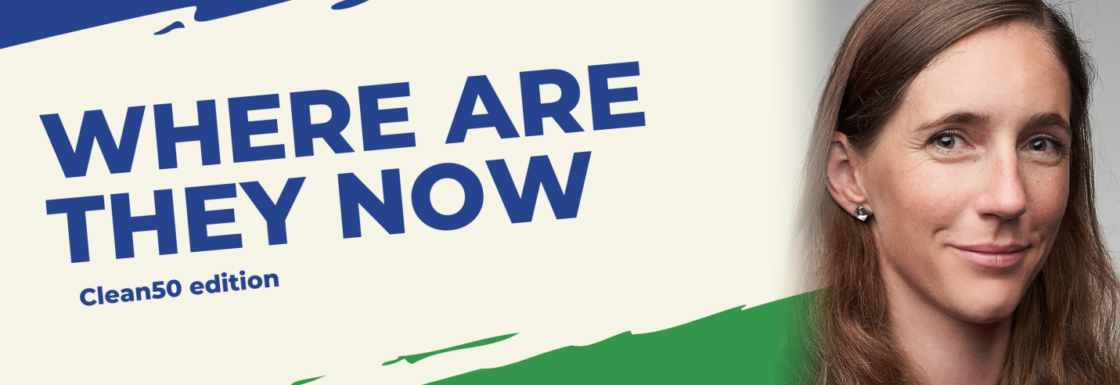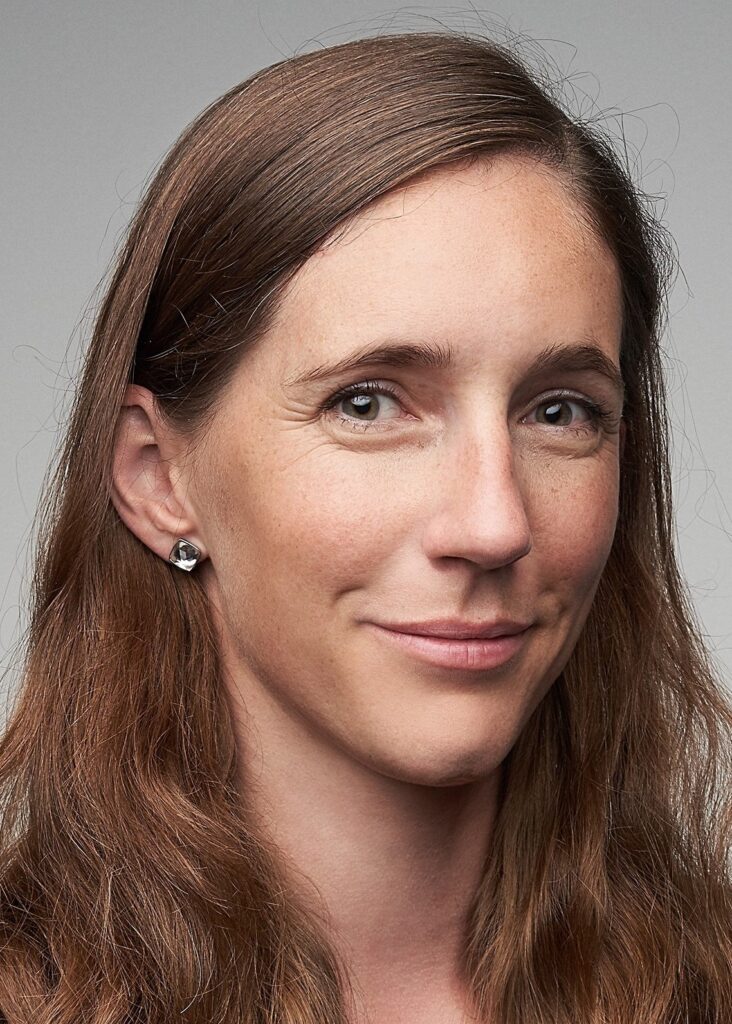Where are they now – Julia-Maria Becker

We love seeing the growth of our past winners and want to share their sustainability journeys with you! We have been following up with our past winners by asking them a series of questions to see how their careers and organizations have developed over time.

Julia-Maria Becker – Manager, Sustainable Business & Operations, RBC Sustainability Group
In 2019, Julia-Maria won a Clean50 Emerging Leader award for being an instigator, connector and leading voice for climate action in Alberta, advancing the discussion around energy efficiency and clean energy. She created the New Energy Economy project, a web-based map highlighting low-carbon projects across Alberta, and brought together 500 thought leaders across government, industry and civil society at the Alberta Climate Summit.
Q: Can you describe your current position and company?
A: The Royal Bank of Canada (RBC) is Canada’s largest bank, and one of the largest in the world based on market capitalization. RBC is a diversified bank and provides a wide range of services to personal clients, small businesses, large corporations, and institutional investors. Addressing climate change has been a focus at RBC for many years, having reported to the CDP since 2003 and achieved two consecutive targets to reduce greenhouse gas emissions, reducing emissions by close to 50% in the last decade.
In 2018, RBC announced a new climate strategy, called the RBC Climate Blueprint. This strategy represented a shift to a business-led strategy focused on how RBC is responding strategically to the impacts of climate change – including how clients and communities are supported through the net-zero transition. Last year, RBC announced commitments to reduce all operational emissions by 70% and source 100% of its energy from renewable and non-emitting sources by 2025. As the Manager of Sustainable Business and Operations, I’m responsible for helping to meet these targets.
Q. How are you contributing to reaching Canada’s climate change and emission goals?
A: Tackling climate change presents a big challenge and an even greater opportunity for Canada, one that will impact all of our lives and those of generations to come. For me, having switched from the policy influencing non-profit sector, to the financial sector, is my way of accelerating the action we have started to take on climate change and where we have to go as a global community. Energy is at the core of our daily lives and Canada’s path to net-zero requires significant innovation and capital. Within my role at RBC, I’m responsible for helping to achieve commitments to source 100% renewable and non-emitting electricity within global operations – which is interconnected with a commitment to reduce emissions in RBC’s operational emissions by 70%, both by 2025. These are ambitious targets that motivate me to apply innovative solutions, including: procuring renewable energy through power purchase agreements in Alberta, working with Indigenous communities on renewable energy partnerships, identifying opportunities to purchase offsets, and working with stakeholders across the sector to contribute to accelerating the sustainable, inclusive transition to net-zero.
Q. How has being recognized early on in your journey as a Clean50 emerging leader affected your journey?
A: Getting recognized as a Clean50 emerging leader was a great opportunity for me to be part of a network of sustainability professionals that I can learn from, reach out to for advice and collaborate with. Clean50 alumni is the perfect filter for me to apply when I think about potential collaborators or look for inspiration on what the next ambitious project could look like within my area of influence.
Q. Do you have any advice for young adults starting their sustainability careers?
A: Don’t be shy to ask professionals you admire and respect for a (virtual) coffee. I have had the best experiences and learned so much. Most people are very willing to share their knowledge, wisdom and lessons learned. Even the ones that might seem intimidating.
Also, make sure you educate yourself broadly. It is great to be an expert in a certain area, but I think it is also important to be able to put things into context, understand how politics and global dynamics influence our field and always be informed on what ambitiousness in our field looks like, so you can provide informed contributions and accelerate change by increasing ambition.














